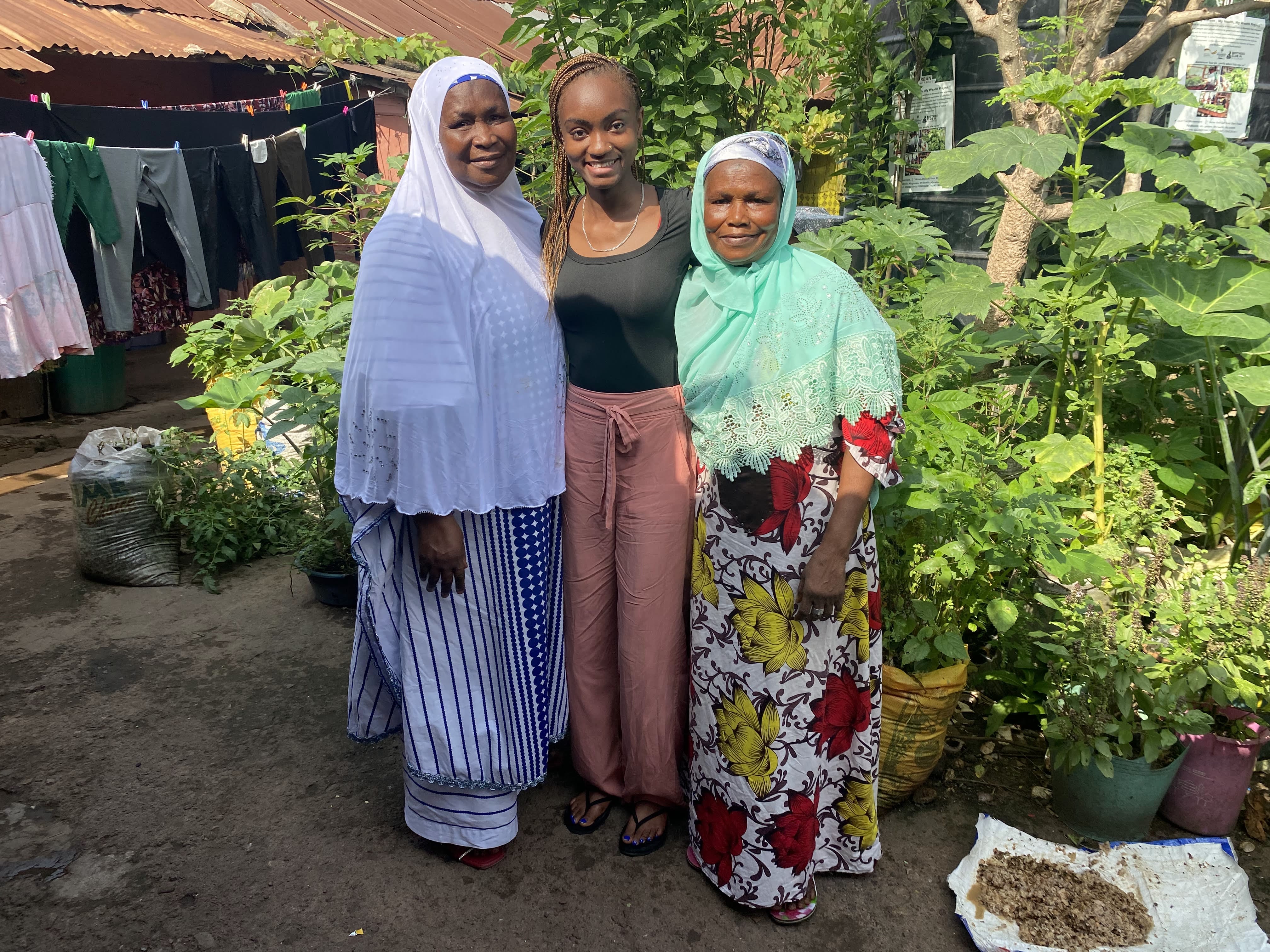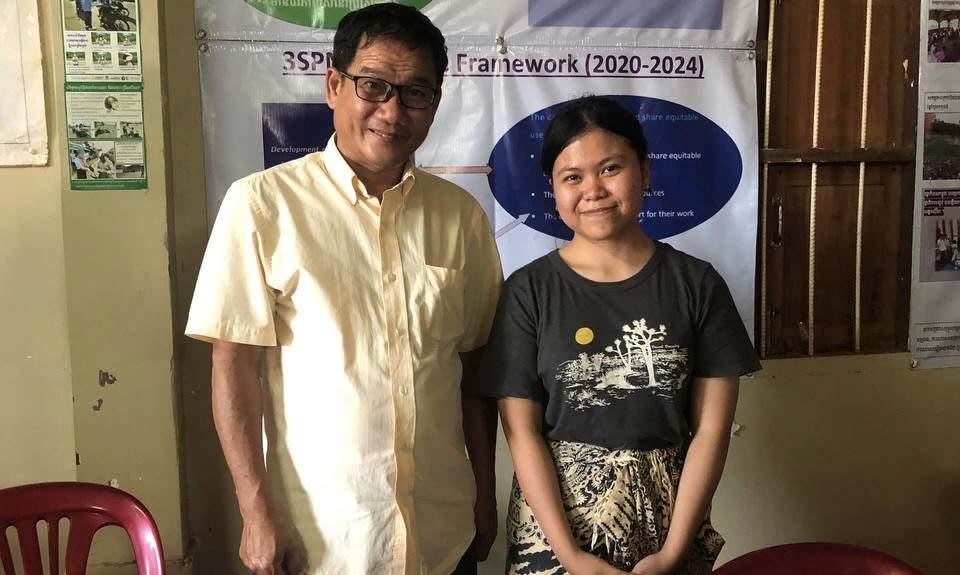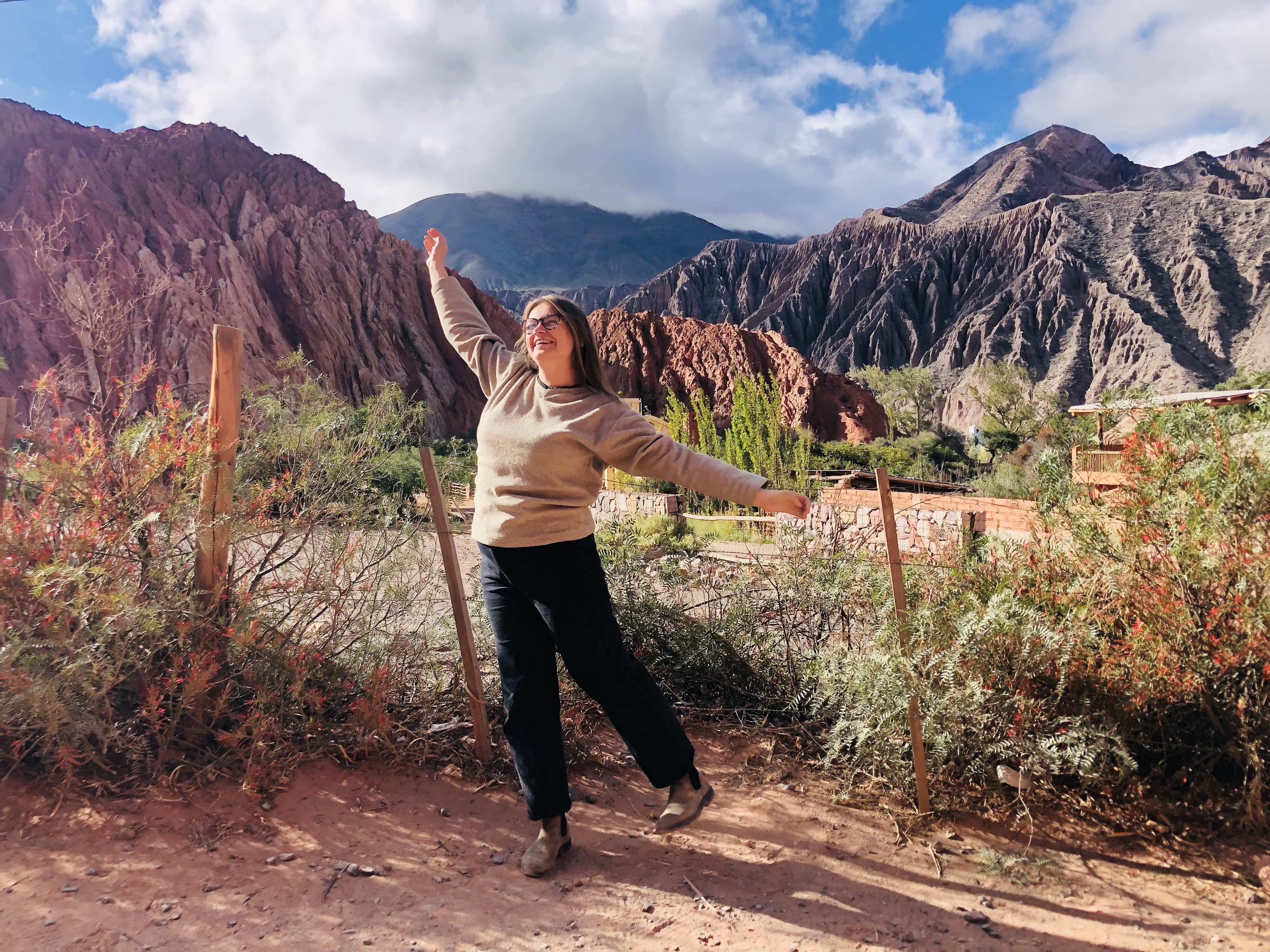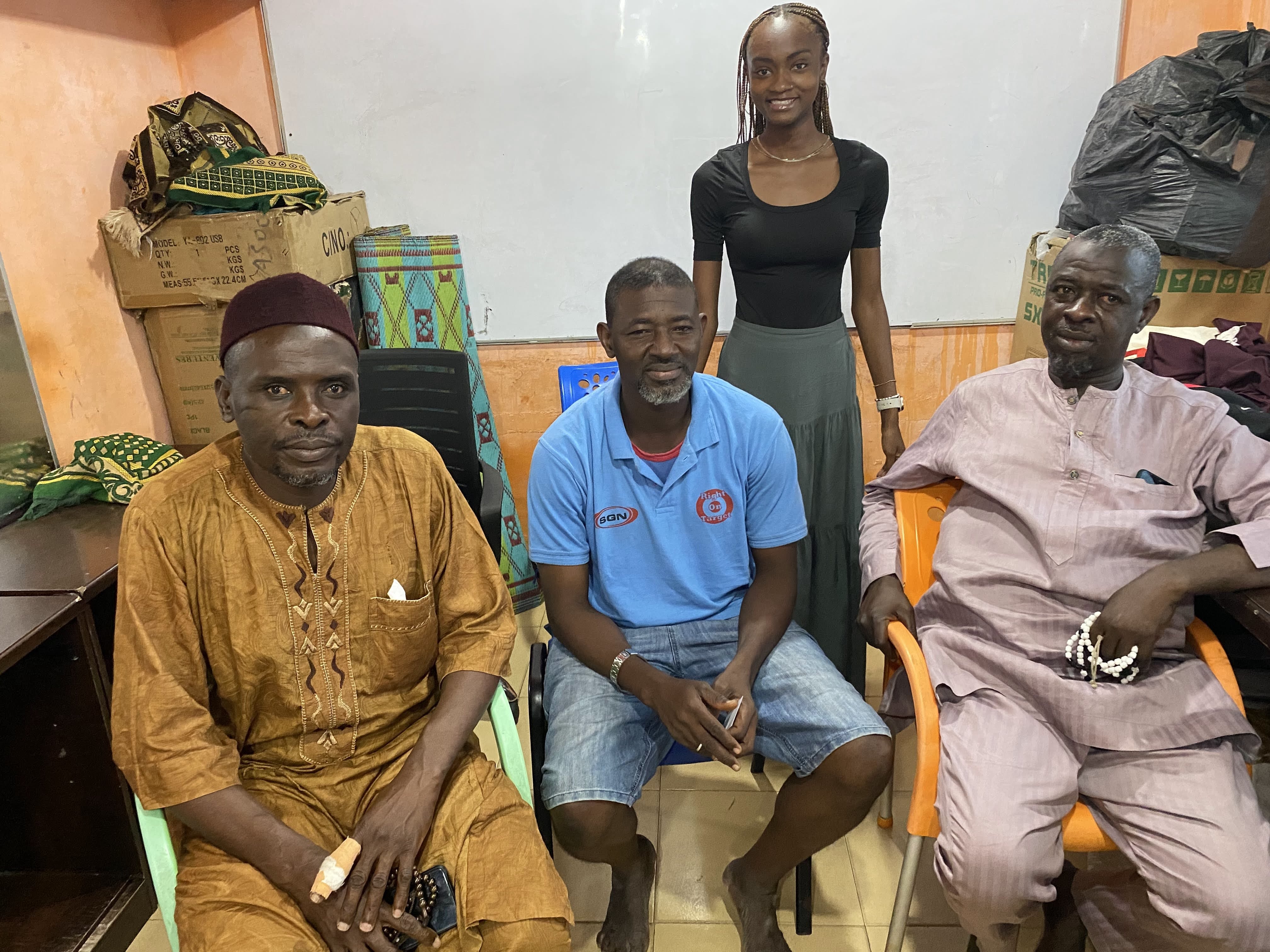Global Curiosity, Local Insights
Thanks to the Biehl International Research Fellowships, four Sewanee students spent the summer undertaking transformative research journeys across three continents.

For the first time since 2019, four Sewanee undergraduates were able to travel and perform research abroad after being named Biehl International Research Fellows. The fellowship is a unique opportunity reserved just for Sewanee students and is administered by the University’s Office of Global Citizenship. Following a competitive application process, Biehl fellows are awarded up to $5,000 each to fund a summer research project of their choosing. The only limitation: Fellows must conduct a social science study in a country where the primary language is not English.
Pursuing independently designed projects ignited by their personal passions, the four 2023 fellows collectively went to three countries on three different continents in search of answers to timely questions. Letting their curiosity lead the way, they met every challenge head-on and returned not only with new perspectives—but also with connections that span the globe.

Tuyen Le (right) with the director of 3S River Preservation in Rattanakiri Province, Cambodia.
Tuyen Le (right) with the director of 3S River Preservation in Rattanakiri Province, Cambodia.
Tuyen Le, Cambodia: Studying local fishermen’s responses to climate change and hydropower development on the Mekong River
Growing up in Tây Ninh, Vietnam, Tuyen Le, C’24, experienced firsthand the devastating effects of climate change when her rural province suffered a major drought in 2010. “I don’t need to imagine environmental issues,” says Tuyen. “I’ve felt them and seen people coping with them.” With that experience weighing on her mind, Tuyen arrived at Sewanee some years later certain that she would pursue a major in environmental studies and, one day, return home and use her knowledge to do something about it.
That relatively straightforward goal became more complicated when Tuyen took Politics Professor Amy Patterson’s Politics of Development and Foreign Aid course, which she says changed her life. “I realized that environmental issues were so multifaceted that they cannot be understood from just a technological or scientific perspective alone,” she says. As she connected her environmental concerns with her growing interest in politics, Tuyen’s proposal for a Biehl International Research Fellowship was born: She would go to Cambodia to study local fishermen’s response to climate change and hydropower development on the Mekong River.
The site stood out to her for several reasons. The Mekong River sustains more than 70 million people in Southeast Asia, and the growing investment in hydropower development by nations like China make it an interesting region in terms of geopolitical relations. And while Tuyen would perform her research in Cambodia, she expected her findings would still be relevant for her home country, where the Mekong Delta is home to one third of the population and provides rice for the entire nation.
This summer turned out to be a tricky time for an outsider looking to perform research in Cambodia. Tuyen arrived just a month prior to the country’s national election and was advised that political sensitivities around her research topic might make accessing certain communities difficult or impossible. Undeterred—“I’m already here,” she recalls saying—Tuyen moved forward with her project and assembled a vast support team to make it happen.
Chief among them was the Southeast Asia Program at the Stimson Center, a policy and research center, which helped connect Tuyen to nongovernmental organizations (NGOs) operating in the region. With the NGOs lending her credibility and making introductions, Tuyen was able to travel safely through the country and meet directly with local fishermen and NGO staff in five different provinces.
Tuyen also relied on five different translators in order to interview her subjects. She had arrived in Cambodia with some basic knowledge of Khmer, Cambodia’s official language, which allowed her to introduce herself and establish rapport with her interviewees. The translators would step in for the much longer and more nuanced interviews, a process fraught with managed chaos as many were conducted in groups of six or seven people and required significant time spent translating questions and answers back and forth.
Through it all, Tuyen never wavered on the value of the undertaking, noting that the paper she produced would be of interest to her partner NGOs and, ultimately, help to advance discussions around the impact of development in the region that includes her home.
As such, she viewed this project as a sort of homecoming. “Going to Cambodia this summer,” says Tuyen, “it feels like I’ve taken the first step in fulfilling my promise to my province.”

Molly Jirgal in Argentina, where her research focused on people who had left the Catholic Church as a form of political protest.
Molly Jirgal in Argentina, where her research focused on people who had left the Catholic Church as a form of political protest.
Molly Jirgal, Argentina: Exploring apostasy as a form of political protest
Not long after arriving in Argentina to study abroad, Molly Jirgal, C’24, had a problem. She had scraped her foot and needed a bandage—and, quite literally, she didn’t know how to ask for help. She’d studied Spanish before embarking on the project, but found there was a bit of a learning curve to adjusting to casual conversation. “I had written an entire paper in Spanish on Foucault, but I couldn’t ask for a Band-Aid,” laughs Jirgal.
Despite the somewhat ignominious start, Jirgal embraced the challenge of adapting to a new language and culture and, when her program ended, did something unusual: She stayed. Continuing to live with her host family in the same apartment where she spent the spring semester, Jirgal extended her time in Argentina to pursue independent research thanks to the Biehl International Research Fellowship.
Long interested in the relationship between politics and religion, Jirgal decided to focus on the relatively recent apostasy movement in Argentina, in which Argentinians formally left the Catholic Church as a form of political protest. Raised Catholic, Jirgal had always understood that formally leaving the church was not possible. “This told me the exact opposite. Not only was it possible, but thousands of people were doing it,” she says.
Leveraging the connections she made during her study abroad program—one of her first interview subjects was one of her professors—Jirgal began speaking with an ever-widening network of Argentinians who had apostatized and others who had been involved with the movement. “Most of them were super excited to have a space to talk about it and have someone who would listen,” says Jirgal, though the fact that the conversations were centered on an intensely personal experience brought with it some challenges.
Frequently, Jirgal found herself having to pivot over the course of an interview. There was the time she unwittingly ended up in the office of one of the most prominent lawyers in the movement (“I show up and the interview is at Palacio Barolo, one of the most iconic buildings in Buenos Aires. I was like, ‘Oh. Hmm. Interesting.”). There was the time she realized mid-interview that one of her subjects had actually not successfully apostatized. And there were other times when the conversation would broach heavily emotional territory.
Jirgal credits her ability to navigate the unpredictable conversational terrain in her second language to the length of her stay in Argentina. “I’m really happy I got to stay an extra seven weeks because it just felt more natural to be speaking,” she says. And by then, she’d become accustomed to the particularities of Spanish as spoken in Argentina.
Those extra weeks also served to further solidify the connection Jirgal had formed with her new community.
“There is a tradition in Argentina called the sobremesa. It literally translates to ‘over table,’ but it refers to that time after dinner when everyone's finished their food but no one wants to leave the table because you’re just talking for hours about everything and nothing all at the same time,” says Jirgal. Even as her travels through Argentina took her to such far-flung places as Patagonia and Mendoza, Jirgal consistently found her heart calling her back to the sobremesa at her host family’s table. “Those little moments,” says Jirgal, “are what study abroad is about.”

Delana Turner met with an elected assemblyman (right) and his staffers to discuss her project and community dynamics in Nima.
Delana Turner met with an elected assemblyman (right) and his staffers to discuss her project and community dynamics in Nima.
Delana Turner, Ghana: Grappling with perceptions of the African diaspora
Delana Turner, C’24, expected that she would learn a lot when she decided to study abroad in Ghana. But what she didn’t know was that the experience would come to change the entire trajectory of her college career.
While studying in Ghana, Turner interned with a nongovernmental organization (NGO) called Spread Out Initiative, an experience that introduced her to the community of Nima and facilitated a number of friendships. During a casual conversation with one friend, Turner was stunned to hear the young woman say that she wished her ancestors had been enslaved and taken to America, because that would mean she would be American today.
“I didn’t know how to feel in that moment,” says Turner. “It still gets me speechless to this day because it flipped everything I knew about the transatlantic slave trade and the legacy of slavery here in the U.S.” It turned out to be an idea that Turner would hear repeated in various forms by other acquaintances during the rest of her semester in Ghana.
After returning to Sewanee, Turner found herself continuing to process those comments. “I knew it was something that I wanted to research and pursue further,” she says. In consultation with the Ghana program’s leader, Professor of Politics Amy Patterson, Turner alighted on an idea for a research project that would bring her back to Nima to do just that. Recognizing the taboo around discussions of slavery in parts of Ghana, Turner settled on a related research question as her way back to the topic: How do the residents of Nima understand and potentially link themselves to the African diaspora?
With funding from the Biehl International Research Fellowship, Turner returned to Ghana barely half a year after she had first left. In the first of several moments of reconnection, her homestay family from her semester abroad picked her up at the airport. She soon found herself returning to the NGO where she had interned, and delighted in the surprised faces of her friends and colleagues.
“I just walked in one day and was like, ‘What's up, guys?’ And just made it seem as casual as possible,” laughs Turner. The NGO’s leadership knew Turner was coming, but she had left her peers in the dark—on purpose. Because some of them would be interviewed for her project, Turner didn’t want them to start researching her topic ahead of time. But also, says Turner, “It just made it a little fun.”
Initially concerned that she would encounter resistance to her questions, Turner quickly found a genuine interest and enthusiasm among her interviewees. She first interviewed contacts from the NGO, who then provided referrals to grow the number of participants in the project.
The interviews themselves offered ample opportunity for Turner to reflect. For one thing, they helped her to better contextualize the comments that had first spurred her toward this line of inquiry. “A lot of that ... comes from the economic hardship this particular community is facing,” says Turner.
But the interviews also pushed Turner to reconsider her own identity and how her expectations for what her time in Ghana would mean compared to what she actually found.
With much still to interrogate, Turner is taking some of the themes she’s developed in her research and applying them to her upcoming senior thesis. Drawing on her experience in Ghana, Turner wants to expand W.E.B. Du Bois’s notion of double consciousness—the coexistence and conflict of Black and American identities—by considering the additional intersection of two more identities: feminine and diasporan.
For Turner, it’s an unexpected—but no less welcome—development as she rounds out her time at Sewanee. “Going to Ghana has helped me learn more about my identity, including the parts that are unexplored and unexplained,” she says. “I don't really know where it's going to lead me just yet, but I feel like everything is falling into place.”
Lina Khomenok, Argentina: Investigating the impact of immigration resulting from the Russo-Ukranian war
In February 2022, Lina Khomenok, C’25, watched in horror as news broke of Russia’s invasion of Ukraine. Khomenok and her immediate family had emigrated from Russia to the United States in 2019, but she still had relatives living in Russia who were unable to leave. As the situation continued to develop, Khomenok became increasingly troubled by media coverage that she felt flattened all Russians into a monolith that supported an unjust war. Despite what she was seeing in the press, Khomenok knew that there were many Russians who opposed the war—and that they were willing to give up everything and leave the country because of it.
When the application for the Biehl International Research Fellowship opened, Khomenok realized that the idea for her project had been right in front of her for the past year: She could capture the experiences of the Russians who were starting over in a new country, and offer a corrective to the dominant narrative that had so concerned her.
Khomenok narrowed her focus to Russians resettling in Argentina for two major reasons: one, the nation had seen some of the largest numbers of Russian immigrants worldwide since the war began; and two, she had relatives who were themselves part of the wave of Russian migration to Argentina and could help her make connections with others in the region. Using social media to make contact prior to her arrival, Khomenok found that her original list of interviews doubled—and then nearly tripled—as word got out within the community about her project. “At first, some people were a little suspicious of who I was and my motivations,” she says. Yet once it became clear that she was genuinely interested in listening to their stories, Khomenok says, “They started spreading the word and telling others that they needed to talk to me.”
What struck Khomenok most about these conversations were not the stories of struggle—of which there were plenty—but rather the many that contained a palpable optimism and joy. Many had been welcomed into their neighborhoods by Argentinians, some were starting businesses, and others still were enjoying new freedoms. They could post their true feelings on Instagram, speak openly about being LGBTQ+ without fear of arrest, and do something that would have been too dangerous to consider in Russia—protest. Says Khomenok, “They told me, ‘We are doing what we can for the people who are still locked in Russia.’”
Frequently, Khomenok’s interview subjects would invite her to dinners, lectures, and other events held by and for Russian immigrants in Buenos Aires. Saying yes to every invitation, Khomenok not only met future interviewees at these events but also experienced firsthand the welcome and support of this burgeoning community with whom she had much in common.
An immigrant herself, Khomenok found that much of what her new acquaintances shared resonated with her on a personal level. “When you are in the process of immigrating, you don’t really talk about it. You’re just doing it,” says Khomenok. “When you have the chance to peel back the layers of everything that was going on during that challenging time, you’re left with a powerful sense of ‘Wow, look how much I did to get here.’”
Khomenok’s research project, then, quickly took on a greater significance to the community she was investigating. Thirty-minute interviews extended to longer than an hour as they represented, for many people, the first time that they could tell their own story at length. “I wanted them to feel heard and for people to see that these experiences they’re sharing—they matter,” says Khomenok. “Their lives matter.”
